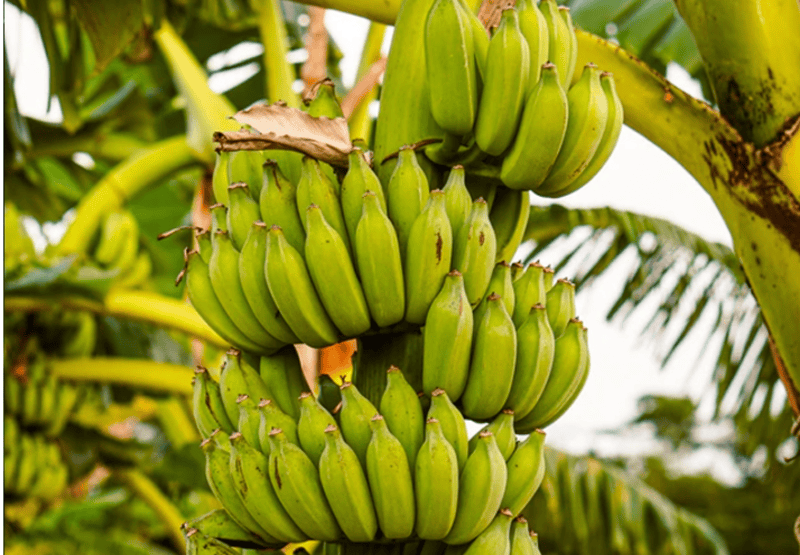Tanzania scientists working to develop disease-resistant bananas to combat deadly virus

The Kenya Plant Health Inspectorate Service (KEPHIS) has increased surveillance efforts to monitor the movement of banana seedlings and ensure farmers access disease-free planting materials.
Researchers at the International Institute of Tropical Agriculture (IITA) are working to develop disease-resistant banana varieties to combat the Banana Bunchy Top Virus (BBTV), a highly destructive disease that can cause total yield loss to banana farmers.
The virus, which is spread by banana aphids, has already been reported in several African countries, including Angola, Benin, Burundi, Cameroon, the Democratic Republic of Congo (DRC), Egypt, Equatorial Guinea, Gabon, Malawi, Nigeria, Rwanda, South Africa, Tanzania, Togo, and Zambia.
More To Read
- Factory farming in Africa: Development banks see it as a good idea, but it’s bad for the climate
- AU calls for rapid tech adoption in farming to shield continent from food crises
- CS Kagwe says Kenya imports five billion eggs annually, urges farmers to boost local production
- State turns to private sector to drive agricultural transformation
- Nutrition expert explains why bananas and avocados are berries, yet strawberries aren’t
- Hold up, humans. Ants figured out medicine, farming and engineering long before we did
According to The Citizen, IITA scientist Happyness Mpanda confirmed that banana seedlings resistant to BBTV have been sent to Bukavu, DRC for screening.
Currently, there is no known chemical treatment or cure for the virus.
The only effective control method is uprooting and destroying infected plants while ensuring new seedlings are sourced from disease-free sources.
To curb the spread of BBTV, IITA is screening 72 banana varieties to determine their resistance to the virus. Any variety that proves resistant will be advanced to the banana product development phase to ensure long-term food security.
In Tanzania, the Tanzania Plant Health and Pesticides Authority (TPHPA) reported that BBTV was first detected in Kigoma in 2020, after spreading from Burundi.
Since then, the virus has reached seven regions: Dar es Salaam, Coast, Morogoro, Mbeya, Kilimanjaro, Kigoma, and Mwanza.
Experts warn that without strict measures to stop the movement of infected banana plants between regions, BBTV could spread further, endangering banana production across Africa.
Farmers are now being advised to destroy infected plants immediately and obtain seedlings only from certified disease-free sources.
While it is still unclear how the situation is spreading in Tanzania, Kenya might not be spared.
Here, banana farming plays a crucial role in food security and income generation, particularly in regions like Meru, Kisii, Murang’a, and Nyamira.
While BBTV has not been widely reported in the country, agricultural experts are urging preventive measures to avoid an outbreak.
The Kenya Plant Health Inspectorate Service (KEPHIS) has increased surveillance efforts to monitor the movement of banana seedlings and ensure farmers access disease-free planting materials.
Additionally, the government is collaborating with research institutions to explore possible resistant banana varieties that could safeguard the country's banana industry from potential BBTV infections.
Farmers are encouraged to stay vigilant, report any suspicious symptoms in their crops, and adopt integrated pest management strategies to control aphid populations, which are the primary BBTV carriers.
Top Stories Today











































